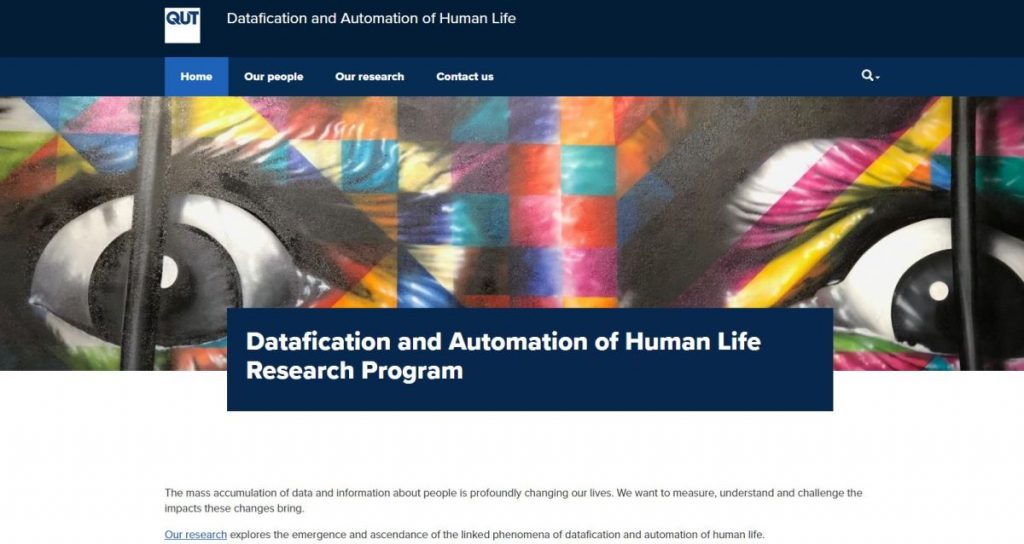The panopticon of the Smart City is a system set up so that free citizens police, interrogate, and report on each other.
Academia, with its woke newspeak, is a god-awful thing. Only through the complete destruction of language can actually fascist policies, which threaten to eradicate humanity, be passed off as progressive, even social-democratic. Our aim is to build upon our previous chapters to show that these were not intellectual fishing expeditions – we’re here with the receipts.
Jeremy Bentham’s horrific theory and model of the Panopticon is openly presented as a ‘positive vision of the future’ which official academia endorses through its ivory-tower liberal idealists as the foundation of ‘Smart Cities’. The Great Reset openly takes its inspiration for the ‘Smart City’ from the Panopticon prison system.
In his 1975 work, ‘Discipline & Punish: The Birth of the Prison’, the French poststructuralist Michel Foucault, combining the ideas of his Marxist mentor Althusser and those of Nietzsche, looks at Bentham’s panopticon and traces it back in time to the concept of the quarantine justified by a plague. He goes on to describe the 17th century city under quarantine as the basis of our modern conception of prison in horrifically prescient detail, given the present reality of a plague-justified lockdown, citizen tracking, and control system already imprisoning millions of people in Europe and the Anglophone world.
Is this a mere coincidence? Or have the planners of the Great Reset intentionally taken Foucault’s critical description of the plague-to-panopticon as their operating system?

The prison grid society, the Panopticist project was developed by the 19th century English liberal Jeremy Bentham, as we discussed in ‘Smart Cities: The Perfection of the Prison Grid Society’.
Smart Cities are not merely poor or distorted manifestations of a genuinely positive vision, they are genealogically defective, going back to that great enemy of humanity, Thomas Hobbes, whose influence on Bentham was profound.
From the perspective of planned development, these new cities are the culmination of several decades of ‘green’ initiatives at the heart of public-private synergy initiatives, which has been the meal ticket for any number of universities.
Academia in Service of Technocracy
Because of the corporatized decline of western civilization, including at the level of the academy, there has been a compartmentalization and lack of a truly critical interdisciplinary approach. This has left the schools of law, engineering, and technology the task of proposing neo-Benthamian panopticons as Smart Cities, and openly so, but with a shockingly impoverished understanding of political science and political philosophy. You see, in their minds, these things are good.
And yet these fields necessarily inform both the ethical and practical dimensions of any such civilizational project such as a ‘Great Reset’ to ‘build back better’ into ‘Smart Cities’.
None of which is to say that there isn’t some attempt to grapple with the ethics of the endeavor at the academic level. The point here is that the state of the academy has been so far impoverished, precisely as the result of the awards for faculty and chairs system has been driven by philanthropy – a philanthropy which in turn serves the interests of the technocracy, in line with the World Economic Forum’s projects like its ‘Partners Program’, which works in tandem with its ‘Young Global Leaders’ initiative.

This creates an echo chamber and vicious cycle, where chairs of departments with powers over curriculum and emphasis of the departments in question, then promote the next generation of candidates through their post-secondary programs, who in turn advance through a ‘merit’ program of awards on the basis of embodying the vision already laid out by the WEF. It’s a gift that keeps on giving.
If we conceive of ‘social democracy’ as the economics of fascism with its twin system of corporate dominance plus a welfare state, add to it the recent emergence of an official ‘in-group vs. out-group’ two-citizen class system, take away meaningful elections, then we can see a parallel construction or analogous evolution of para-fascist technocracy emerging from various fields of ‘expertise’. All without the fachidiots in each field having a view of the entire leviathan.
The work of Foucault and his influence on ‘Smart Cities’ is not merely an abstraction we insist upon, but rests firmly and openly in the peer-review and academic literature on the construction of Smart Cities. We do not claim that Foucault advocated such, as his analysis is non-advocacy. But the institution he labored in had a reason for his retention.
For context, we will first cite the relevant section of the text from the above referenced ‘Discipline & Punish’.
“This enclosed, segmented space, observed at every point, in which the individuals are inserted in a fixed place, in which the slightest movements are supervised, in which all events are recorded, in which an uninterrupted work of writing links the centre and the periphery, in which power is exercised without division, according to a continuous hierarchical figure, in which each individual is constantly located, examined and distributed among the living beings, the sick and the dead – all this constitutes a compact model of the disciplinary mechanism.[…]
But there was also the political dream of the plague, […] The plague-stricken town, traversed throughout by hierarchy, surveillance, observation, writing; the town immobilized by the functioning of an extensive power that bears in a distinct way over all individual bodies – this is the utopia of the perfectly governed city. The plague (envisaged as a possibility at least) is the trial in the course of which one may define ideally the exercise of disciplinary power. In order to make rights and laws function, according to pure theory, the jurists place themselves in imagination in the state of nature; in order to see perfect disciplines functioning, rulers dreamt of the state of the plague.” – (Michel Foucault, Discipline and Punish: The Birth of the Prison, chapter ‘Panopticism’ pp. 197-198)
Those who are aware, who have enough of an interdisciplinary foundation to see what is truly developing, find themselves as either renegades of that system, or as its minions and ideologues, whose own motivations border on irrelevant given that the system will always tend to produce the parts which it requires.
A typical example of these minions can be found at the Queensland Institute of Technology, Faculty of Law. Emerging from corporate ‘synergy’ law studies in the arenas of intellectual property, ecological concerns, international law, and the development of ‘Smart Cities’ we find the Datafication and Automation of Human Life Research Program.

The entire project is framed just like the ‘criticism’ of the IMF which comes from the WEF. Their masthead art reflects that: it is a person imprisoned, and here we are to assume that they are against such a system. If polled, how many would affirm that they are opposed to illiberal solutions, and instead support a discourse of empowerment? Yet the meaning and substance of their work is entirely corporatist and technocratic, demeaning human beings and changing laws from minimum requirements to maximum demands of the technocracy.
For example, the work of Lachlan Robb and Felicity Deane of the DAHL program, in “Smart Cities as Panopticon: Highlighting Blockchain’s Potential for Smart Cities Through Competing Narratives”, we find a microcosm of the inverted world, where technocracy is disguised in the language of progressive newspeak, evidenced in the abstract alone:
“This chapter argues that the narratives of smart cities demonstrate the potential value of blockchain technologies. Drawing upon competing narratives within the cultural imaginary, both the ‘dream’ of a better city, and the ‘fear’ of an oppressive structure will highlight the need to consider both Bentham and Foucault’s Panopticon. The term ‘panopticon’ is defined and explored within the context of blockchain technology. In doing so three concepts are identified: the enabling nature of a panopticon; the use of a blockchain-enabled-panopticon to encourage human flourishing; and the ability for technology such as this to enhance standards above a basic minimum of the law. This chapter suggests that understanding smart cities, panopticon and blockchain, may allow for a better account for competing narratives of fear that can lead to a deeper understanding of how this technology can be deployed.”
What is being proposed here is identical to what we have consistently warned about in pieces such as ‘Deplorable Until Proven Compliant: Kafka, Social Credit, & Critical Theory’:
The change of law into community standards, to go from a basic minimum of legality, to enforced maximal conformity to an ideal; erasure of the distinction between lawfulness and ‘virtue’.
Also in the atrocious neo-fascist work of Deane, to add clarity and veracity to our interpretation of the newspeak, we have added, in brackets, the decoded meaning of the newspeak used in ‘Panoptic blockchain ecosystems: An exploratory case study of the beef supply chain’:
“Within this paper we look at this technology through a different lens and suggest blockchain represents a technologically enabled expression of the modern panopticon, somewhat turned inside out. [It is literal, not inside out]
The term panopticon, first conceptualised by Jeremy Bentham in the 19th century, initially described a physical structure of a jail, which at its heart included a central tower. Surrounding the tower are those who are objects of observation, ‘the watched’, or the prisoners.
The prisoners’ surroundings and circumstances meant that they could not tell if they were being observed in any given moment, and thus were encouraged [terrorized] to behave in the way that the rules dictated. To do anything short of this would potentially result in punishment after the behaviour had occurred.1
This panopticon can be likened to the existing understanding of law and governance. The suggestion that we promote in this paper is that blockchain technology can augment the negative power [disciplinary power] associated with law and governance. Indeed, we show how blockchain enables the creation of voluntary common knowledge associations (voluntary associations) [involuntary block-chain-gangs], in which the participating subjects are empowered to regulate themselves [forced to police each other in a collective punishment system] in a manner which replicates qualities of the panopticon.
To illustrate these ideas, we use observations from the Beefledger project [the project aims to reduce beef availability]. Through these observations we illustrate why blockchain-enabled technology and the resultant formation of voluntary common knowledge associations can be desirable using the metaphor of the panopticon. In the panopticon, the relationship is a one to-many [dictatorial and authoritarian] configuration where the one is a figure of authority (the watcher over the watched).
However, blockchains can enable a new role for the ‘watched’- namely, to also be ‘watchers’. The original ‘watcher’ can therefore take a step back, conserve energy, and let the subjects do their own supervision [involuntary block-chain-gangs]. In this regard, these voluntary associations will benefit [spare from further punishment] not just those who participate within them, but the broader community [community standards created top-down].”
Academia is Producing Moral Failures
Why is there such a desire to create systems suitable for prison, for the free citizens in a society?
Why is the actual failure of the Panopticon prison, built at Millbank, not mentioned? It did not produce meaningful labor from inmates, and the rate of mental illness and suicides skyrocketed. How is this left unaddressed?
This is because progressivism says that past attempts at social engineering only failed because the past didn’t enjoy the contemporary state of the science. Trust the science.
It is here we can see that the academic minions of the technocracy share Bentham’s conflation of technological innovation with good.
In tracing the perfection of this system of the panopticon itself, the new technologies allow the prison to be decentralized and not requiring location.
Movements, thoughts, activities which today are still legal, can at some later date be declared retroactively illegal, and the same can be used as a pre-crime prediction leading towards the algorithmically based arrest for crimes not yet committed.
The prisoners become the prison guards, and taking together Bentham’s panopticon with the 24-7 surveillance state, we have a system which overcomes any potential budgetary obstacle, which Bentham hoped himself to overcome through the tinted glass.
The panopticon of the Smart City is a system set up so that free citizens police, interrogate, and report on each other, and worse, internalize these technocratic rules such that a mass-collective Stockholm syndrome is induced. We see this cancer growing already with the ‘Karen’ phenomenon on Covid19 mandates.
Likewise, the system of academia is a system set up so that students enter with vaguely progressive ideals, and exit ‘Stockholmed’ with a discursive framework connotative of liberation but yet ironically denotative of the top-down order of the technocracy.



Basically the gist of what this astute author responsibly and implicitly states and the lesson that we may draw therefrom is this : No real harm would result if the “stick” of the Panopticon merely led to the “carrots” of the Smart Cities without also resulting in the Academically Stockholmed being technocratically, if not also physically, CORNHOLED !